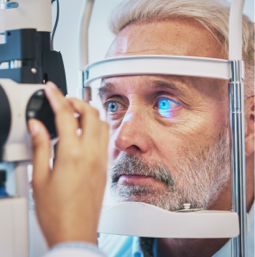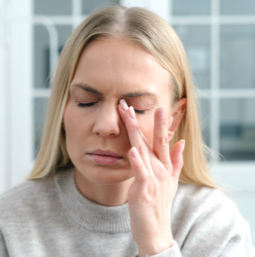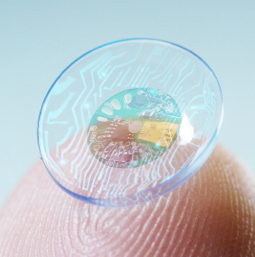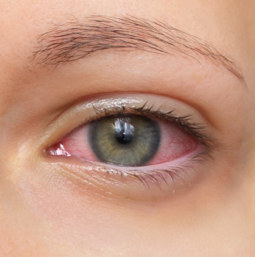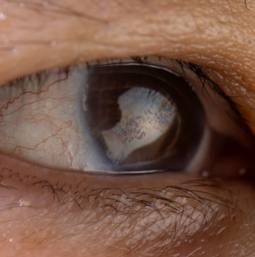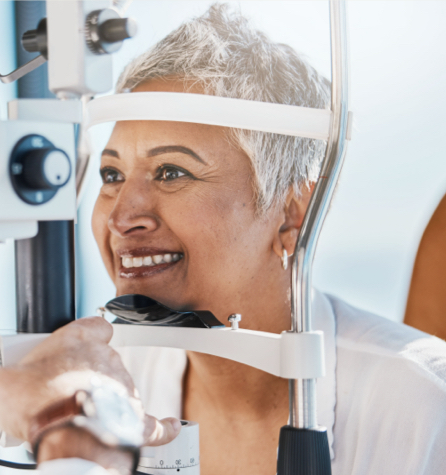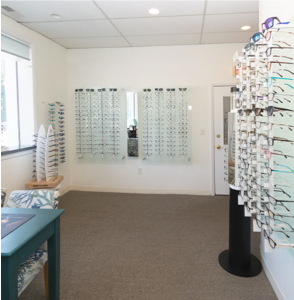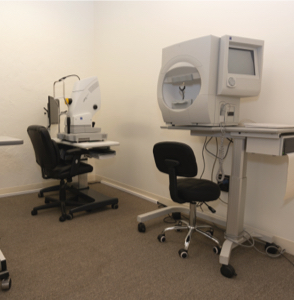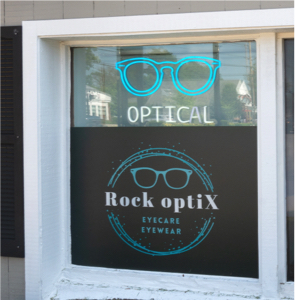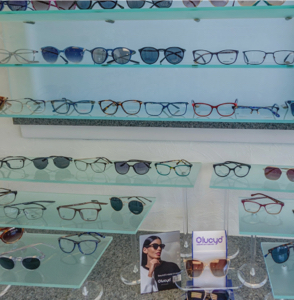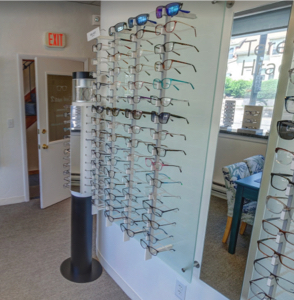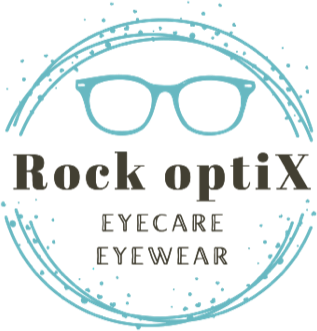Did you know that getting the right nutrition can protect against eye diseases and preserve vision quality? Talk to your optometrist about getting the right vitamins, minerals, and fatty acids to keep your eyes healthy as you age.
Nutrition and Good Vision
Most people are aware that it is important to eat a heart-healthy diet low in fat to prevent blockages in the arteries and maintain the flow of blood around the body. The eyes depend on tiny arteries for oxygen and nutrients, so eating a diet low in fat with many fruits, vegetables and whole grains can protect your eyes as well as your heart.
The right nutrition can protect your retinas. You have probably heard that carrots are good for your vision. This is because they are a good source of vitamin A, which is a vital nutrient for the photoreceptors in your eyes. Vitamin A is found in plant foods contain vital carotenoids and micronutrients, while Vitamin C is found in fruits and vegetables, such as Broccoli, Kale, Peppers, and Oranges.
Along with Vitamin A and Vitamin C, Selenium is protective against Age-related Cataracts and Macular Degeneration. It is found in dairy products, eggs, seafood, nuts, and seeds. Since this nutrient is particularly important for the cornea, scientists are working on finding a selenium compound to treat corneal disorders.
Eye Nutrition: Carotenoids, Flavonoids, and Fatty Acids
There are three carotenoids that protect your retina, macula, and lens of your eyes: Lutein, Zeaxanthin and Meso-zeaxanthin.To get the vital cartoneids in your diet eat plenty of green vegetables and green leafy vegetables, orange vegetables and egg yolks.
Here are a few suggestions of foods high in carotenoids: spinach, kale, green peas, summer squash, pumpkin, brussel sprouts, broccoli, asparagus, green and orange peppers, oranges, mango, nectarine, peach.
Alongside carotenoids, flavonoids are important for your eye health and consuming foods with flavonoids have been shown to reduce the risk of Glaucoma. Sources of flavonoids include dark chocolate, red wine, berries, citrus and tea. Rather than consuming a high quantity of flavonoids, it is important to take in a variety of sources.
Eating a diet rich in Omega-3 fatty acids have also been found to reduce the risk of glaucoma due to their anti-inflammatory properties and can alleviate the symptoms of Dry Eye Syndrome. Common sources of Omega-3s include salmon, flaxseeds, chia seeds, and walnuts.
Gamma-linolenic Acid sources, such as hemp seeds and spirulina, also contribute to the production of anti-inflammatory compounds in the body. They can reduce the risks of cataracts as you age and of eye conditions such as diabetic retinopathy and may also alleviate the symptoms of dry eyes.
Exercise
In addition to consuming these vital nutrients, exercise is very important for your eye health. Regular physical activity promotes healthy blood vessels in the eye, preventing Age-related Macular Degeneration. Exercising increases blood flow, which can lower intraocular pressure in glaucoma patients. For those with diabetes, it can also reduce the risk of diabetic retinopathy, “the leading cause of vision loss among working age adults” (American Academy of Ophthalmology).
Recipe for your Eye Health
There are many delicious ways to consume the nutrients you need for your eyes. One of Dr. Hrach’s favorite fall recipes in Pumpkin Soup. The pumpkin in the recipe has Vitamin A, Vitamin C, Potassium, Lutein, and Zeaxanthin, all of which are important nutrients to support your eye health.
Magically Spiced Pumpkin Soup
Ingredients
- 1 tablespoon oil
- 1 large sweet onion (such as Walla Walla), peeled and coarsely chopped
- 1 large Golden Delicious apple, peeled and coarsely chopped
- 3 slices (1/4-inch thick) fresh ginger
- 2-1/2 cups chicken broth or veggie broth, divided
- 2 cans (15 ounces each) solid-pack pumpkin
- 1 cup canned coconut milk
- 1-1/2 teaspoons curry powder
- Black pepper
- Additional chicken broth and extra spices, if needed
- Pumpkin seeds, raisins or whipping cream for garnish (optional)
Steps
- Heat oil in a large saucepan. Add onion, apple and ginger. Cook and stir 10 minutes over medium heat. Add 1/2 cup broth. Cover and simmer 10 minutes or until apple is tender.
- Pour onion mixture into a blender; purée. Return the mixture to the saucepan. Add pumpkin, remaining 2 cups broth, half-and-half or canned coconut milk, curry powder, add pepper to taste. If the soup is too thick, add additional broth, a little at a time, until soup reaches desired consistency. Cook until heated through.
- Sprinkle each serving with pumpkin seeds and/or raisins, if desired, or drizzle cream on top of soup to make a Halloween design.
Supplements: Macuhealth
First and foremost, eating a wide variety of nutritious foods can optimize your eye health. However, it is also important to supplement your diet, particularly if you are at risk for eye diseases. Dr. Hrach recommends macuhealth to protect against macular degeneration, the leading cause of vision and blindness.
Macular degeneration results from an inability to protect against the exposure to elements and decay, or oxidation. Found in leafy green vegetables, carotenoids are a pigment that protects against light damage and oxidative stress.
Macuhealth’s triple carotenoid formula includes meso-zeaxanthin, lutein, and zeaxanthin.These potent antioxidants localize to the macula and work against oxidation. As these pigments accumulate, they offer more and more protection against oxidative stress, particularly from blue light emitted by the sun and digital screens.
Along with managing your blue light exposure, Macuhealth is a good option for preserving your vision as you age.
Ask about Macuhealth and other supplement options for your eye health during your next comprehensive eye exam.



